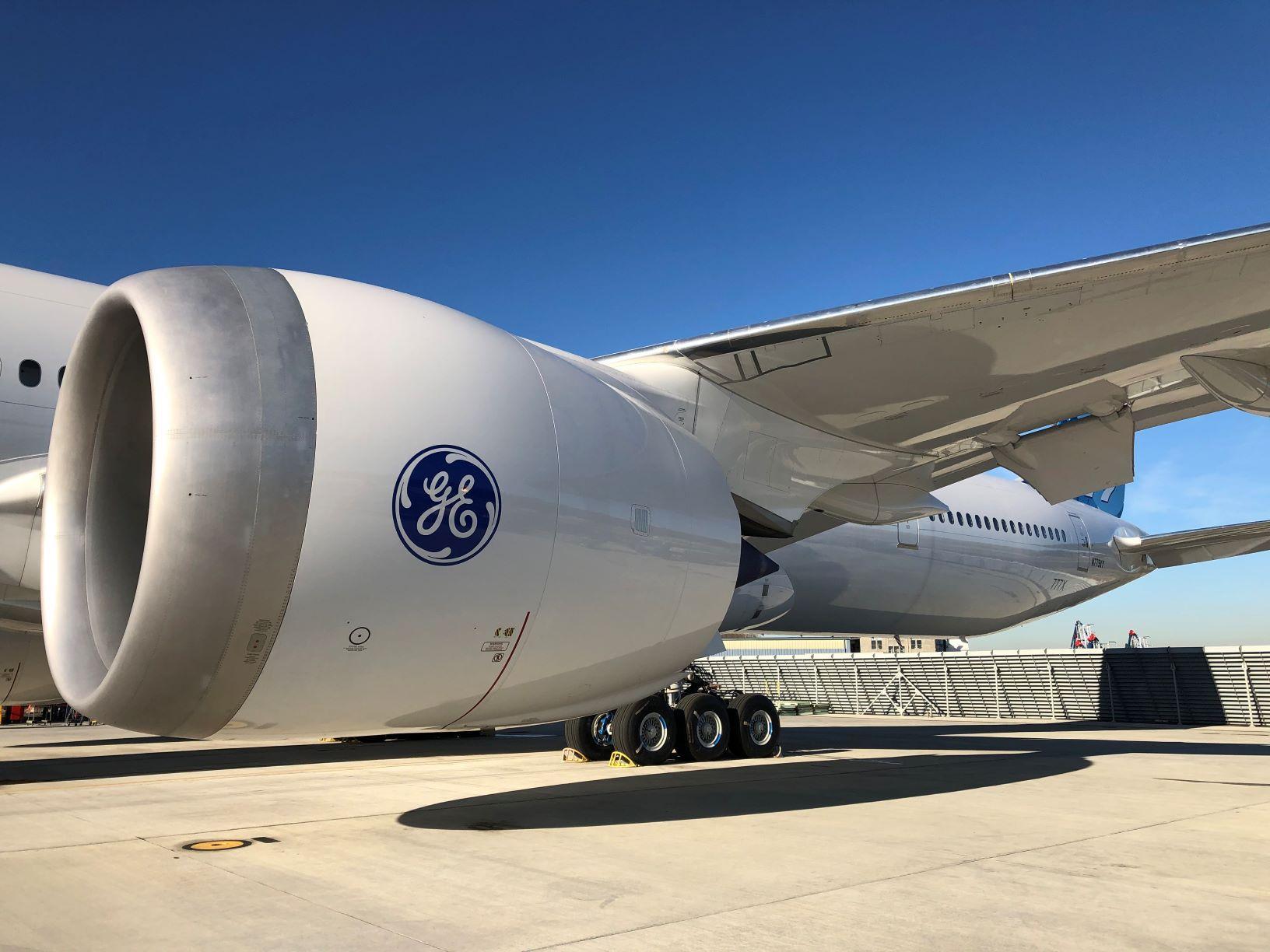
Boeing has temporarily suspended 777-9 test flights pending joint investigations with GE Aerospace into an unspecified issue on the aircraft’s GE9X engine.
Few details of the event have been released but evaluations are focused on whether the issue is limited to this specific engine, a particular production batch or—potentially more seriously—a newly uncovered design flaw. GE Aerospace says, “we had a finding during a borescope inspection of a flight test engine and decided with Boeing to remove the engine and send it to our test facility in Peebles, Ohio for engineering test runs.”
Tim Clark, president of 777-9 launch customer Emirates Airlines, warns that if the engine problem is serious, it could potentially hold up the already delayed FAA approval for type inspection authorization (TIA)—the milestone that clears the way for certification tests to begin. For now, he says Emirates still anticipates debuting the aircraft in July 2025.
“On Dec. 6 we’ll get the information about whether the engine is good to go, in other words, was it a batch or an issue with the whole design of the engine,” says Clark. “That affects the ability to get the flight test program going—Boeing wants to restart it in January [2023]. The TIA, which is meant to be some time by the middle of next year. moves pro rata. If GE has to go back to [do a] redesign and then go through the whole testing process again, it moves back month on month.”
Boeing is declining to comment on the potential timing of TIA, which was originally expected in early 2021. “We’ll defer to the FAA. We continue working to mature our documentation and analysis ahead of certification testing, in coordination with the FAA,” says the aircraft manufacturer. Boeing does, however, acknowledge that an engine problem is under investigation.
“We are supporting GE Aerospace as they assess a recent GE9X engine issue and will resume airplane testing once their thorough process and appropriate actions are complete. Safety is our top priority, and our supplier and technical teams will take the time necessary to support the review as we work transparently with our customers and regulators,” Boeing says.
“GE is reviewing a technical issue that occurred during GE9X post-certification engineering testing, and we are closely coordinating with Boeing on our findings to support their return to flight testing,” the engine-maker says. Although no further details have been given, the incident is believed to center on the turbine area of the hot section. “Engines are [being] stripped down because they blew up,” adds Clark.
Providing additional details, GE says, “following the finding, one GE9X engine was taken off wing and sent to Peebles to support additional engineering test runs. During these runs, a temperature alert was observed, and the operator shut the engine down normally. Engineering investigation of this engine continues.”
The problem is thought to have emerged after an engine powering 777-9 development aircraft WH001 was removed for ground tests in Ohio. Up until Oct. 6, WH001 was the sole member of the 777X test fleet still flying. According to test flight sources, the crew were conducting thermal exceedance evaluations on the engine—the highest time version of which has accumulated around 1,700 hours and 2,600 cycles.
The development of the GE9X has not been without problems. In February 2018, the GE9X’s first flight on the company’s flying testbed was delayed by issues discovered in the high-pressure compressor variable stator vanes (VSV) lever arms. A redesign of the compressor stator subsequently delayed the 777-9 first flight by around six months to January 2020.

